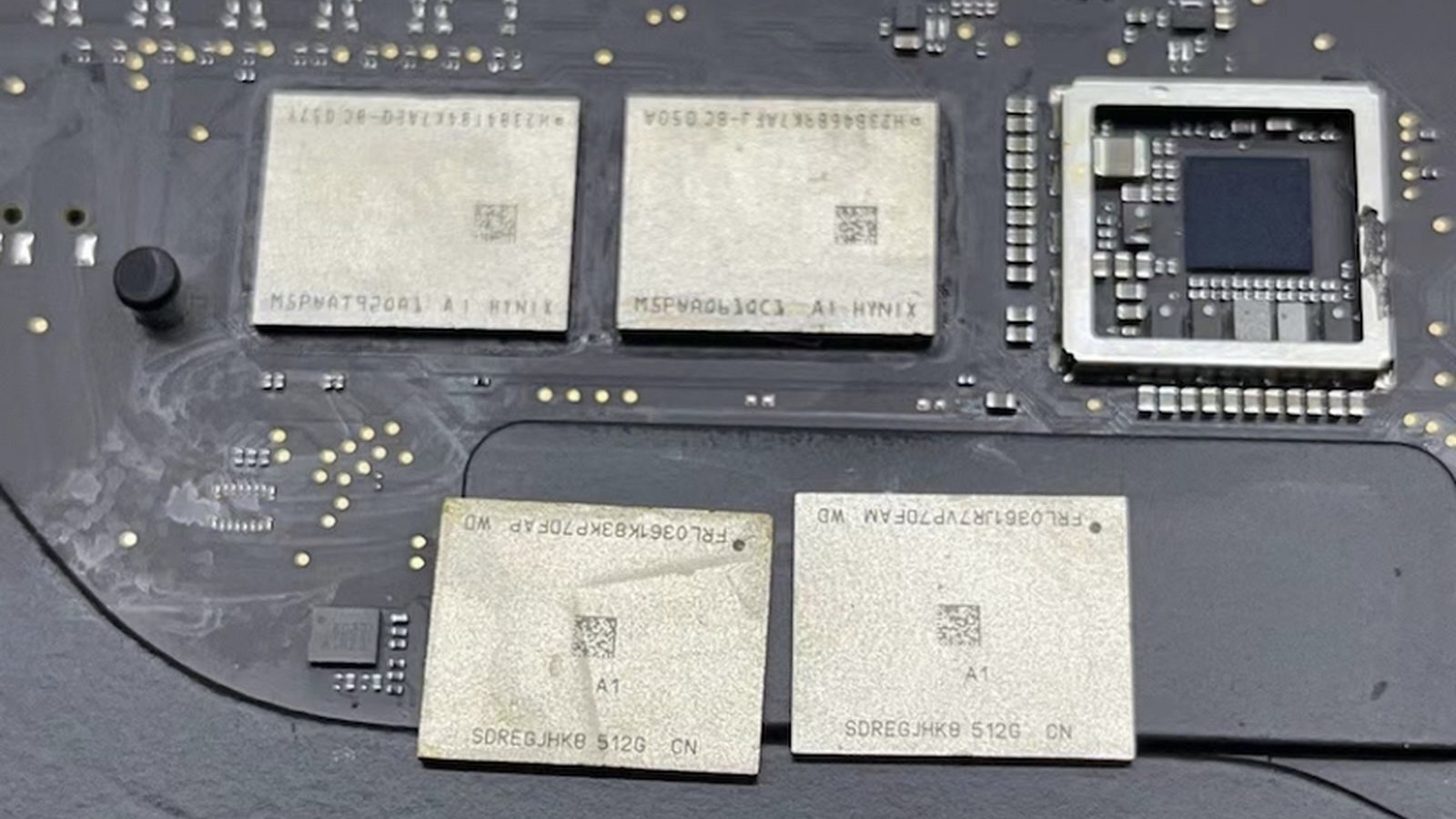Western Digital says that it has lost 6.5 exabytes worth of BiCS 3D NAND flash storage due to use of contaminated materials at two of its plants in Japan in January. The facilities are jointly run by Western Digital and its partner Kioxia, which was previously part of Toshiba. What caused the contamination and when production is expected to resume has yet to be confirmed.
Western Digital and Kioxia are among the world's leading SSD suppliers, with their joint production amounting to around 30 percent of the entire NAND flash market. TrendForce's market research indicates that the price of NAND, which is the main component of SSDs, could spike by up to 10 percent starting in the second quarter of 2022.
Western Digital and Kioxia primarily offer SSD and eMMC storage drives for PCs, but iFixit teardowns have shown that Apple uses Kioxia NAND chips in many of its products, including the iPhone 13 lineup, the iPad Pro, and the 14- and 16-inch MacBook Pro. Whether any existing Apple products manufactured with Kioxia storage in January will need to be recalled is currently unclear.
Many of Apple's Mac SSDs have been supplied by Samsung in recent years, but the company has increasingly turned to custom storage solutions, culminating in the proprietary SSD components on Apple's M1 Macs being soldered in place.
If Apple devices are not directly impacted by contaminated Kioxia hardware, it is still possible that a tightening of supply across the industry could drive up Apple's costs, but whether the company will absorb these price rises or pass them on to consumers is yet to be seen.
Tags: 3D NAND, Western Digital
This article, "Apple SSD Supplier Hit With Contamination Disaster, Flash Storage Prices Expected to Spike" first appeared on MacRumors.com
Discuss this article in our forums
 The
The
0 Commentaires